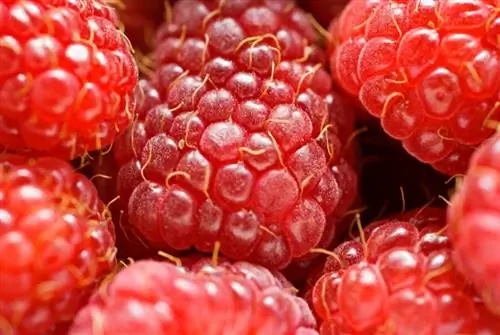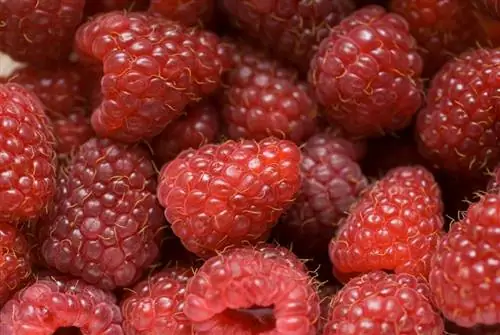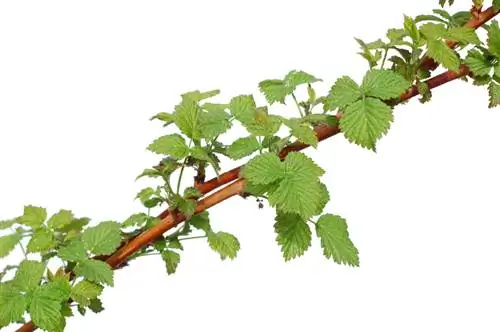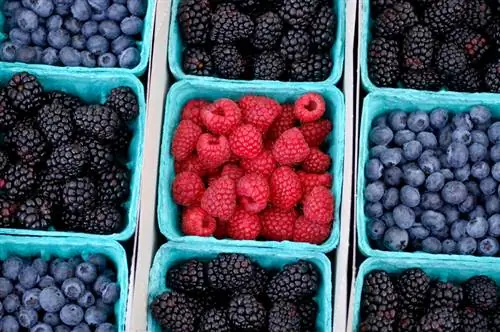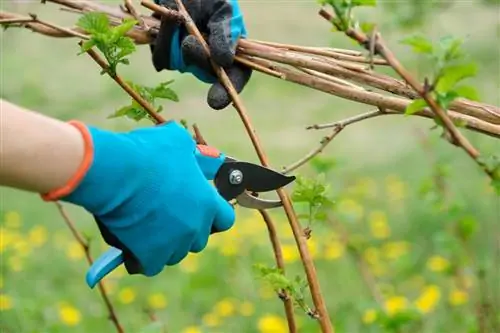- Author admin leonars@hobbygardeners.com.
- Public 2023-12-16 16:46.
- Last modified 2025-01-23 11:19.
Do you have little time or little experience with planting berry bushes? You don't have to go without raspberries from your own garden. Autumn raspberries are the ideal berry bushes for beginners and working hobby gardeners.
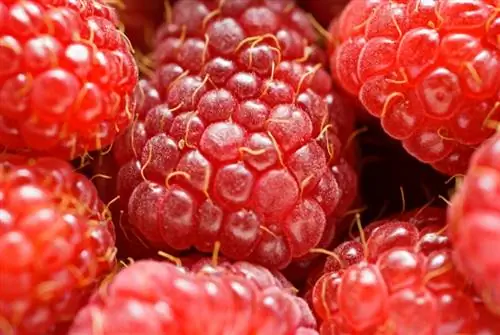
Why are autumn raspberries ideal for hobby gardeners?
Autumn raspberries are easy-care berry bushes, ideal for beginners and working hobby gardeners. They require little care, are less susceptible to maggot infestation and cane disease, often do not require a trellis and have a long harvest season from August to the first frost.
Why growing autumn raspberries is worth it
Autumn raspberries ripen later than summer raspberries, but they are still worth growing. They have some advantages over the early representatives:
- Low maintenance
- Less susceptible to maggot infestation
- Rail disease rarely occurs
- Often no trellis necessary
- Simple pruning
- Harvest time from August until the first frost
Harvest time for autumn raspberries
You can harvest autumn raspberries longer than summer raspberries. The first fruits ripen in August. Depending on the variety chosen, the harvest lasts until October. The harvest season only ends with the onset of the first frost.
Autumn raspberries are easy to care for
Summer raspberries only bear fruit on two-year-old wood. When pruning, only those canes that have been harvested may be removed.
The fruits of the autumn raspberry grow on annual wood. The plant is therefore cut back completely in late autumn.
If you plant both types of raspberries in the garden, create two beds so that you can plant fall and summer raspberries separately. Then you will know exactly which bushes only need to be cut back partially and which need to be cut back completely.
Often no supporting structure necessary
Many varieties of autumn raspberries remain rather small, but develop stronger canes. You therefore do not need a scaffold or trellis.
Autumn raspberries ripen more slowly and irregularly. The rods are therefore not as loaded and do not lean to the ground.
Raspberries without maggots
For many garden owners, maggot infestation of raspberries is a reason to avoid these delicious fruits. In contrast to summer raspberries, autumn raspberries are almost free of maggots because the raspberry beetle only lays its larvae in the summer fruits.
More resistant to cane disease
Wedge disease is a common disease of the shrub. It attacks the canes, which dry out and rot.
Raspberry diseases can be easily managed in autumn raspberries. Since the canes are cut back completely at the beginning of winter, diseases can hardly spread.
Site conditions for autumn raspberries
The location conditions for autumn raspberries are similar to those for summer raspberries. They love a sunny, light place in well-drained soil. They also cannot tolerate waterlogging.
The best time to plant autumn raspberries is spring. They sprout immediately and bear fruit in the first year. You can plant some varieties all year round, but they won't produce until the next year.
You can no longer fertilize autumn raspberries in autumn. There is then a risk that the roots will rot in the ground.
Tips & Tricks
Autumn raspberries are much easier to grow in pots than summer raspberries. Since they don't grow that big and don't need a trellis, they are particularly suitable for care on balconies and terraces.

